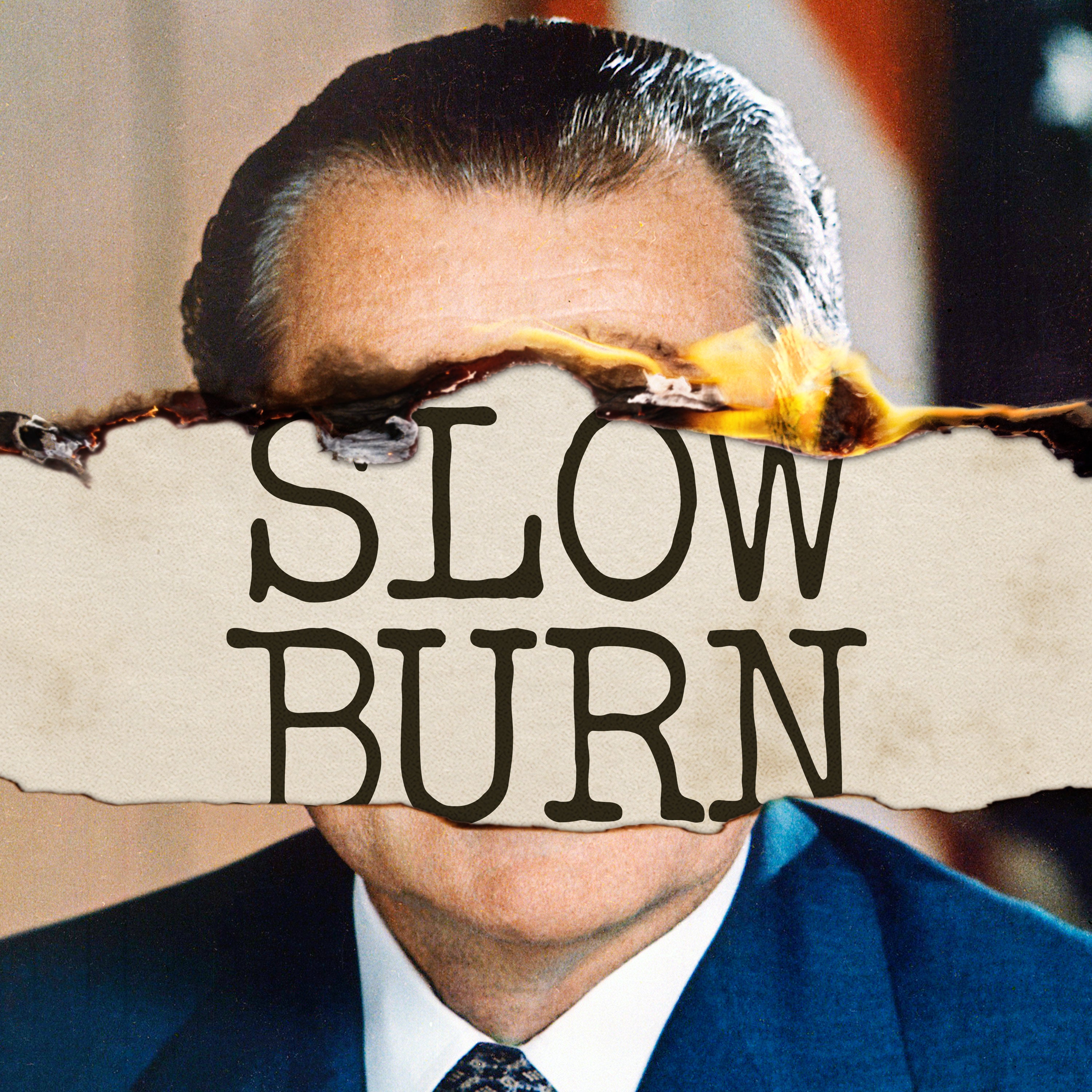Subscribe to Slow Burn in Apple Podcasts
One day at the end of April 1973, Richard Nixon stood on a porch at Camp David and told John Ehrlichman he wanted to die. Nixon had summoned Ehrlichman, his long-serving domestic policy adviser, to tell him he was being fired from the White House.
Nixon had been dreading the conversation, but he knew it had to be done. The Department of Justice had recently informed the president that Ehrlichman could be facing criminal charges. Nixon felt the walls closing in.
Later, Nixon would tell the journalist David Frost how he gave his old friend the news: “I said, ‘You know, John, when I went to bed last night … I hoped—I almost prayed—I wouldn’t wake up this morning.’ ” According to Ehrlichman, the president then began to sob. It would be 15 months before he resigned from office.
So, that’s how Richard Nixon felt as the Watergate story went from a curious burglary to a national obsession. What was it like for everyone else? That’s the animating question behind my new eight-episode podcast series for Slate, Slow Burn.
Why are we revisiting Watergate now? The connections between the Nixon era and today are obvious enough. But to me, the similarity that’s most striking is not between Donald Trump and Richard Nixon (although they’re both paranoid, vengeful, and preoccupied with “loyalty”), or their alleged crimes (although they both involved cheating to win an election), or the legal issues in the two cases (although they both center on obstruction of justice).

Rather, it’s that people who lived through Watergate had no idea what was going to happen from one day to the next, or how it was all going to end. I recognize that feeling. The Trump administration has made many of us feel like the country is in an unfamiliar, precarious situation. Some days it seems like our democratic institutions won’t survive, or that permanent damage has already been done. Pretty much every day, we are buffeted by news stories that sound like they’ve been ripped out of highly stressful and very unrealistic novels.
The point of Slow Burn is to look back on the most recent time Americans went through this en masse, and to put ourselves in their shoes.
Some of the people whose stories you’ll hear on Slow Burn played key roles in the 26-month saga that followed the Watergate break-in. They investigated it, or they covered it, or they helped cover it up. Others were bit players, and still others weren’t involved at all, except in the sense that, like millions of other Americans, they followed it in real time, and were changed by it.
The first episode, which you can hear by subscribing in your favorite podcast player or clicking the play button below, is about a woman named Martha Mitchell. Mitchell was the wife of Nixon’s first attorney general. In the days after the break-in, she was forcibly tranquilized and held prisoner in a California hotel room so that she wouldn’t tell reporters what she knew about Watergate. When I learned her story a few months ago, I couldn’t believe I’d never heard it before.
Maybe looking backward in this way is an exercise in wishful thinking, as if the fact that the nation made it through Watergate means we’re going to be fine too. Maybe it’s escapism at a time when we should be focused on the present. But it’s worth doing regardless. Whether or not Watergate can “tell” us anything about our present moment, I can promise you, having spent months researching it, that learning about the details, the subplots, and the peripheral characters will change how you perceive what’s going on now. It’s a reminder—a humbling if not an entirely comforting one—that many of the destabilizing events that have been raining down on the country since last November will soon be entirely forgotten. Hopefully someone will make a podcast about them one day.
Podcast produced by Leon Neyfakh and Andrew Parsons.